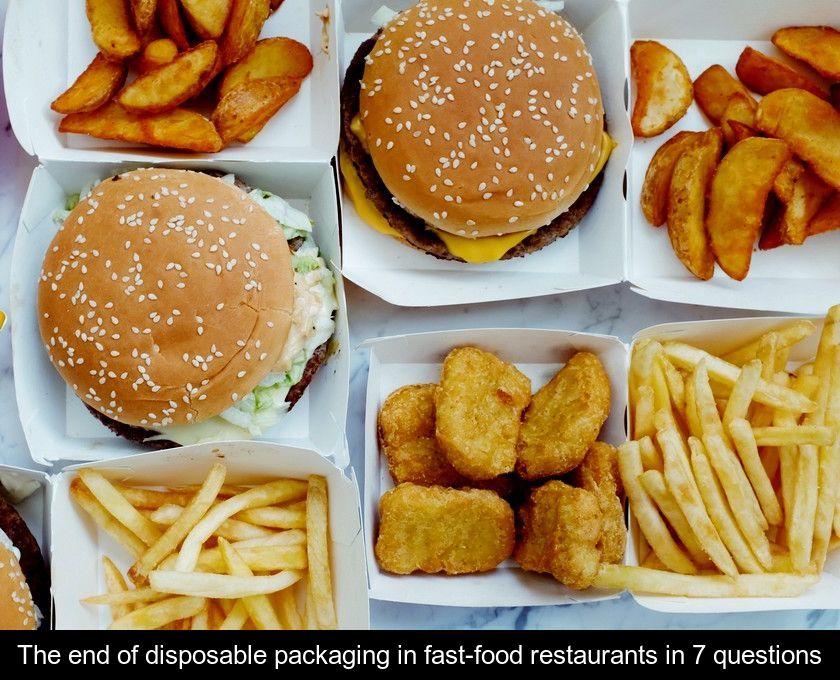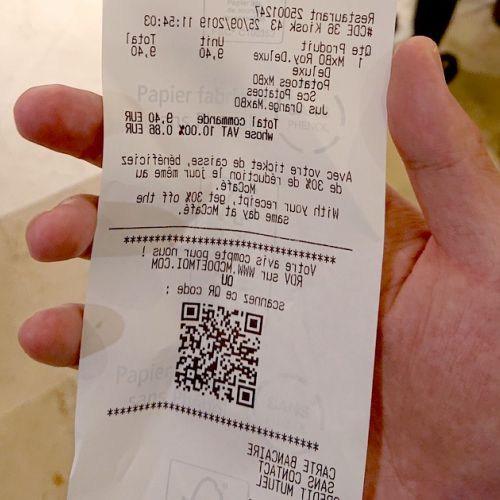The End Of Disposable Packaging In Fast-food Restaurants In 7 Questions
Since January 1, 2023, disposable dishes and packaging are prohibited in fast food outlets for meals eaten on site and must be replaced by washable and reusable containers. The end of disposable packaging in fast food restaurants is a small revolution in this sector. We propose to better understand the objectives and consequences of this measure in 7 questions.
1- What does the law say?
According to the anti-waste law for a circular economy (Agec) passed in 2020, no more fast food chains must use disposable dishes and packaging for meals eaten on site from January 1, 2023.
After the ban on plastic straws and cutlery, the end of disposable packaging in fast food marks another step in the process that should lead to the exit from plastic in use by 2040.
2- What are the objectives of this measure?
This pioneering measure in Europe aims to limit single-use plastic packaging and significantly reduce the amount of waste we produce.
According to calculations by the Ministry of Ecological Transition, the end of disposable packaging in fast food would avoid some 150,000 tons of waste per year.
3- Who is affected by this ban?
The end of disposable packaging for meals eaten on the premises particularly targets fast food outlets that serve 6 billion meals per year in France.
Unsurprisingly, fast food restaurants are major waste producers. The Zero Waste France association has calculated, for example, that the McDonald's brand generates more than a kilo of packaging per second!
But the ban, which came into effect on January 1, 2023, also concerns collective catering, i.e. school and company canteens as well as museum cafeterias.
The government specifies that 'all catering establishments that can accommodate at least 20 guests are affected by this provision'.
4- What are the alternatives to disposable packaging?
As of January 1, 2023, it is no longer possible for restaurants to serve a meal on site in disposable packaging, whether plastic, paper or cardboard.
As a result, fast food outlets have begun to use reusable tableware and replace :
- cups with real glasses
- disposable French fry cones with washable, reusable hard plastic containers
- nugget boxes with earthenware containers...
At the beginning of 2023, the metamorphosis of the fast-food tray is not complete. At McDonald's, for example, sauces are still packed in small disposable trays.
Moreover, this is not the only problem the company is facing in its transition from disposable to washable dishes.
5- What are the limitations of this measure?
The implementation of this measure faces several challenges, in particular:
- the cost of reusable containers for professionals in the sector
- the lack of habit of customers who tend to throw these containers in the trash
- the theft of reusable dishes, which increases the cost of this measure for restaurants...
Yet, the end of disposable packaging in fast food restaurants only has a positive impact on the environment if the new containers are washed and reused several times.
6- What are the penalties?
Fast food chains will have to adapt, or face penalties. The Ministry of Ecological Transition is announcing a 5th class fine for restaurants that fail to comply with the ban on disposable packaging.
The fine of €1,500 can be increased in the event of a repeat offense and raised to €3,000 for a natural person and €15,000 for a legal entity.
A memoire en demeure can also be decided by the administrative authority. It may be accompanied by a daily penalty of €1500 or more applying until the formal notice is satisfied.
7- What will be the next step?
After the end of disposable packaging in fast food, the anti-waste law will apply to the medical world on January 1, 2024.
As of that date, medical devices containing microplastics will be prohibited from being sold.
In subsequent years, measures against microplastics will cover new washing machines and cosmetics.








